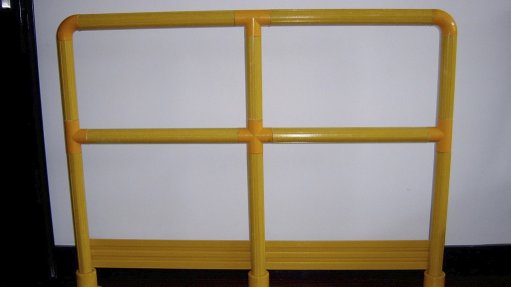
The South African petrochemical industry plays a significant role in the local economic growth so desperately required in South Africa currently. The sector is under pressure from many reasons including the trend towards the reduction of operational carbon footprint, there is also a proliferation of new technological developments.
These represent new and dynamic opportunities for the industry to exploit, if it can evolve apace with industry developments.
This is an exciting and concerning time according to Glen Pringle, Director of Vital Engineering.
“Looking at this exciting industry further afield, there is a myriad of positive developments throughout the rest of Africa,” Pringle observes.
“Increased oil and gas exploration, potential new refineries and extensions to existing refineries are planned along the East and West African coasts. This is a clear indication that the greater petrochemical sector is definitely not stagnant,” he adds.
Having been a key supplier of a wide range of products including gratings, stair treads, pressed pattern floors and safety handrails to the petrochemical, mining and other industries for the past 80 years, Vital Engineering is very well acquainted with the needs of the industry - and with developments in materials technology. This has placed the company in the privileged position of being able to continually meet the needs of their petrochemical clients by adapting and expanding their product ranges in line with international industry requirements and trends.
“We are pleased to have a secure base of repeat business within the petrochemical sector - and a growing base of referred clients – Vital Engineering enjoys a reputation for supplying uncompromising quality products which are reliably produced on-time, on-specification and within budget,” he says.
The petrochemical industry furthermore has very specific requirements of the construction materials used, depending on the particular context or application.
Vital’s glass-fibre reinforced resin (GRP) or aluminium gratings are suitable for non-spark environments” Pringle points out.
Petrochemical plants also produce certain products that could be either mechanically or chemically aggressive and corrosive, acidic or alkaline in nature - representing yet another set of limitations and specific requirements regarding the construction materials of choice.
“As we thoroughly understand the properties of our products, which are influenced by factors such as manufacturing method, structural configuration and chemical additives, we can lend valuable support to our clients, so that the correct products are specified, leading to enhanced plant lifetime and performance - and, most importantly, reduced safety risks,” he adds.
Vital Engineering’s products which are particularly popular in the petrochemical industry typically include its mini-mesh or solid top GRP products, aluminium or stainless-steel patterned plate products, and expanded metal products for applications such as safety guards, lock-out areas, and secure areas on petrochemical plants.
“Our clients value the fact that our entire range of products - which includes mild steel, GRP, aluminium, ferritic and non-ferritic stainless steel - is manufactured according to the most stringent international standards, including ISO 9000 /15. Meaning they can rely on Vital Engineering to supply them with an exceptional quality product,” he continues.
It is therefore no wonder that a growing number of clients have been specifying Vital Engineering’s product ranges in their designs.
“Vital Engineering are extremely proud to be the supplier of choice to these consulting engineers and clients, and we truly go the extra mile to keep it that way. Vital engineering offer our clients many configurations with tailored products to meet their specific industry requirements as far as possible.
We also do our best to provide them with valuable guidance and advice based on our deep-seated manufacturing knowledge of each product, and its suitability and application. We therefore invite clients to include us at the initial project design stage. Sometimes new product variations or material additives may have become available, which could make their design more optimal,” he remarks.
“Our success is dependent upon that of our clients, and we are determined to continue providing this ‘vital’ service to the petrochemical sector,” concludes Pringle.